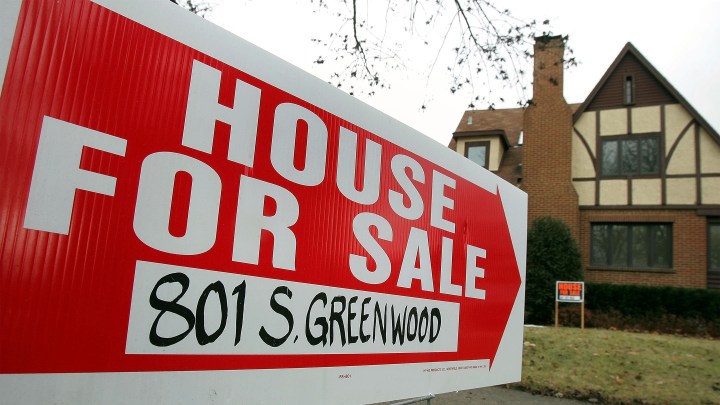
Housing market shows signs of a thaw

Like so many others, Kevin Martin has spent the last few months cooped up at home. He lives in Dunkirk, New York, where he teaches business and economics to grape growers through a program at Penn State University. For now, he’s set up shop in his kid’s nursery. His wife, Heather, who works in human resources, telecommutes from the dining room table.
“Everything seems small when you start filling up the house and staying there all day,” he said.
So, the Martins started shopping for more space and just made an offer on the house right next door. The plan is to build an addition onto the current house and tear down the new one for the extra footprint.
If that sounds extravagant in the midst of an economic downturn, the new house was abandoned. The Martins are paying $19,500. And though they’re both still employed, Martin said it is a risk.
“We’re both definitely really nervous about that, and kind of tapping the emergency fund is a little terrifying right now. But we’re not in the same reality that a lot of other people are in,” he said.
Despite the pandemic and an uncertain economy that’s shed more than 33 million jobs, enough people are feeling confident (enough) that the housing market has been showing signs of recovery recently. Mortgage applications for home purchases have risen three weeks in a row, according to the Mortgage Bankers Association. After falling off a cliff in mid-April, pending sales have also inched up, said Skylar Olsen, an economist at Zillow.
“The housing market is trying to pick itself up after going through what I think all industries have gone through, which was an incredible pullback and reaction to uncertainty and [the] sheer logistical challenge of doing work that has traditionally been so face to face,” she said.
Part of the rebound, she said, is just people figuring out how to buy homes, when so much business has gone virtual.
Another factor is interest rates, said Odeta Kushi, deputy chief economist at First American, a title insurance company. The average for a 30-year, fixed-rate mortgage is hovering around 3.3%.
“For those that do still have a job, it’s actually a good time for them to buy,” she said. “The affordability is, is actually higher given those low mortgage rates.”
If you can get them, that is. With millions of existing homeowners delaying their mortgage payments through forbearance, risk-averse lenders have been tightening their credit standards for new loans. That could be another drag on what’s expected to be a slow recovery.
There’s a lot happening in the world. Through it all, Marketplace is here for you.
You rely on Marketplace to break down the world’s events and tell you how it affects you in a fact-based, approachable way. We rely on your financial support to keep making that possible.
Your donation today powers the independent journalism that you rely on. For just $5/month, you can help sustain Marketplace so we can keep reporting on the things that matter to you.


















